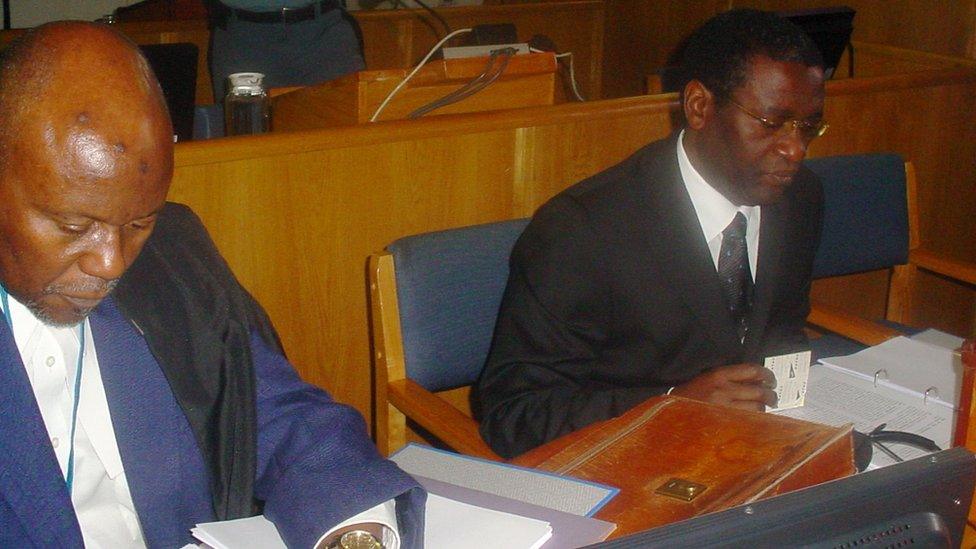Turkey coup attempt: UN demands release of Rwanda case judge
- Published

Judge Aydin Sefa Akay is meant to be reviewing the case of convicted former Rwandan minister Augustin Ngirabatware (right)
A UN legal body has ordered that Turkey release a judge detained in the aftermath of last year's failed coup attempt.
Aydin Sefa Akay is part of a panel of UN judges reviewing the case of a former Rwandan minister convicted of involvement in the 1994 genocide.
The UN's Mechanism for International Criminal Tribunals said Mr Akay was protected by diplomatic immunity.
Turkey has ignored past requests for his release.
The Mechanism for International Criminal Tribunals (MICT) ordered Ankara to release Judge Akay by 14 February and end all legal proceedings against him.
It cited a UN Security Council resolution requiring states to comply with its orders, which it said were legally binding.
Mr Akay was among tens of thousands of officials detained by the Turkish government after the bloody coup attempt last July, which it blamed on followers of exiled Muslim cleric Fethullah Gulen.
Mr Gulen, who leads a mass movement in Turkey, has denied being involved.
Turkey post-coup purge convulses society
Rwanda genocide: 100 days of slaughter
What has Rwanda genocide tribunal achieved?
The MICT said that replacing Judge Akay, who has been detained since September, would have a "chilling effect" on judicial independence because it would allow a state to interfere in the conduct of a case.
"Diplomatic immunity is a cornerstone of an independent international judiciary," MICT President Theodor Meron said.
Mr Akay is involved in reviewing the 30-year sentence given to Augustin Ngirabatware, a former Rwandan planning minister, by the International Criminal Tribunal for Rwanda.
His lawyers asked for the review based on new evidence.
Turkey was initially a strong backer of international courts set up in the 1990s to prosecute serious crimes committed during the Yugoslav wars and Rwandan Genocide, but it has shifted its stance to a more unilateral approach under current nationalist leader President Recep Tayyip Erdogan.
- Published4 April 2019
- Published14 December 2015
- Published28 November 2016
- Published3 October 2016